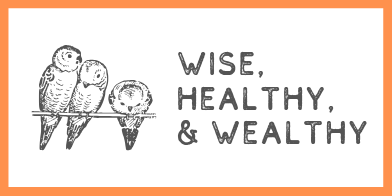Abraham Lincoln famously said:
“Most people are about as happy as they make up their minds to be.”
Would you agree?
Some days it comes naturally, right? It’s easy to look on the bright side when you’re feeling optimistic and upbeat.
But what about those days when you wake up on the wrong side of the bed?
What about those times when you know you feel something, but can’t quite put your finger on it?
It’s not always easy to find the right word to describe our feelings and emotions.
Have you ever wished there was a long list of moods you could scan to find that perfect word to describe how you feel?
You’re in luck!
I’ve put together a comprehensive list of moods to match every emotion you could possibly experience.
After all, some days “happy” and “sad” just aren’t specific enough.
Keep reading for the ultimate mood words list, along with some tips to help you identify and change your mood.
 Here we go then: a comprehensive mood words list! But first, what actually is a mood?…
Here we go then: a comprehensive mood words list! But first, what actually is a mood?…
Interested in mood words? You might also like these…
- 85 Sad Alone Status Ideas
- 85 Quotes About Walking Alone
- 145 Awesome Hashtags about Friends
- 62 Good Morning Messages to Make Her Fall in Love
- 72 Classic Tattoo Meanings
What Is a “Mood” Anyway?
Would you believe there are over 3,000 words in the English language that describe emotions?
Some of these words are generic, such as happy, sad, and anxious.
Other words dig a little deeper.
For example, if “anxious” isn’t specific enough, you could say that you’re concerned, distressed, jittery, or worried sick.
We use expressions and phrases like these to describe how we feel.
Furthermore, experts explain that we have 4 kinds of basic emotions:
- Happiness
- Sadness
- Fear
- Anger
Of course, each of these major emotions can be broken down into hundreds (or even thousands) of more specific feelings.
This is where our “mood” comes in.
It’s defined as the predominant feeling or conscious state of our mind.
Emotions tend to last for a few seconds to a few minutes, while moods can last hours, days, or even longer.
It’s usually easy to identify our emotional triggers.
We smile when we see a puppy, we feel amused when someone tells us a joke, and we feel annoyed when someone cuts us off in traffic.
But it’s often more challenging to figure out why we’re in the particular “mood” we’re in.
We may have something important we need to do, but we’re not “in the mood” to do it.
Or we might search for the perfect “mood music” to match our feelings at the time.
We might even experience “mood swings” that make our emotions bounce around like a ping-pong ball.
So then, how can you identify your current mood? Let’s start with the positive.
 Let’s start with a list of mood words for the good days!
Let’s start with a list of mood words for the good days!
Positive Mood Words List
Here’s a long list of moods to choose from when “happy” just doesn’t cut it.
- Joyful
- Liberated
- Ecstatic
- Interested
- Amused
- Inquisitive
- Proud
- Important
- Confident
- Accepted
- Respected
- Fulfilled
- Powerful
- Courageous
- Provocative
- Peaceful
- Hopeful
- Loving
- Intimate
- Sensitive
- Playful
- Optimistic
- Inspired
- Open
- Amazed
- Excited
- Astonished
- Surprised
- Awestruck
- Eager
- Energetic
- Enthralled
- Rejuvenated
- Relaxed
- Relieved
- Satisfied
- Pleased
- Silly
- Smart
- Thankful
- Sympathetic
- Loved
- Amused
- Blissful
- Cheerful
- Chipper
- Content
- Determined
- Flirtatious
- High
- Hopeful
- Jubilant
- Mischievous
- Naughty
- Nerdy
- Giggly
- Giddy
- Grateful
- Astonished
- Calm
- Comfortable
- Dignified
- Dreamy
- Empowered
- Enlightened
- Exhilarated
- Harmonious
- Hyper
- Idyllic
- Light-hearted
- Mellow
- Nostalgic
- Passionate
- Safe
- Sentimental
- Touched
- Thoughtful
- Trustful
 Next up, a long list of words to describe your mood when it’s negative in nature.
Next up, a long list of words to describe your mood when it’s negative in nature.
Negative Moods Words List
Would it surprise you to learn that there are far more negative mood words than positive ones?
Perhaps we have an easier time identifying positive emotions than negative ones?
Or, as studies suggest, it could be that negative moods are just as contagious as germs.
Maybe when we pick up on someone else’s bad mood, it’s harder to identify the exact emotion attached to it.
Whatever the reason, here’s a long list of moods that go beyond simply being “sad” or “tired”.
- Bored
- Apathetic
- Indifferent
- Lonely
- Abandoned
- Isolated
- Depressed
- Empty
- Inferior
- Powerless
- Despair
- Vulnerable
- Ignored
- Victimised
- Guilty
- Ashamed
- Remorseful
- Disgust
- Disapproval
- Loathing
- Judgmental
- Repugnant
- Revolted
- Awful
- Revulsion
- Detestable
- Avoidance
- Aversion
- Hesitant
- Anger
- Distant
- Critical
- Sceptical
- Sarcastic
- Suspicious
- Withdrawn
- Frustrated
- Irritated
- Infuriated
- Aggressive
- Provoked
- Hostile
- Mad
- Furious
- Enraged
- Hateful
- Resentful
- Violated
- Threatened
- Jealous
- Insecure
- Hurt
- Embarrassed
- Devastated
- Fearful
- Humiliated
- Disrespected
- Ridiculed
- Rejected
- Alienated
- Inadequate
- Submissive
- Worthless
- Insignificant
- Insecure
- Anxious
- Worried
- Troubled
- Overwhelmed
- Scared
- Frightened
- Terrified
- Shocked
- Dismayed
- Startled
- Confused
- Disillusioned
- Perplexed
- Stressed
- Restless
- Rushed
- Sick
- Sleepy
- Tired
- Weird
- Uncomfortable
- Envious
- Apathetic
- Blah
- Bittersweet
- Blank
- Cold
- Complacent
- Cranky
- Groggy
- Crappy
- Crumpy
- Crushed
- Dark
- Alone
- Depressed
- Dirty
- Devious
- Disappointed
- Drained
- Discontent
- Disengaged
- Exhausted
- Gloomy
- Morose
- Irate
- Hungry
- Dejected
- Listless
- Lethargic
- Melancholy
- Predatory
- Indescribable
- Lazy
- Numb
- Annoyed
- Apprehensive
- Brooding
- Critical
- Fatalistic
- Futile
- Heartbroken
- Intimidated
- Nauseated
- Pensive
- Powerless
- Tense
- Vengeful
 With the mood words behind us, let’s go through a few ways they might come in handy…
With the mood words behind us, let’s go through a few ways they might come in handy…
How to Use This List of Moods
Wow, that was a lot of words! Now here’s the million-dollar question: What are you going to do with them?
One way you can use this list of moods is to boost your emotional intelligence.
This involves recognising and regulating your own emotions, as well as helping others to do the same.
Let’s break this down into three easy-to-follow steps.
1. Identify Your Feelings from This Mood Words List
An emotionally intelligent person is someone who’s deeply in touch with their emotions.
More than that, they’re highly conscious and aware of their own emotional state.
This includes the obvious emotions (i.e., sadness, joy) as well as feelings that are more subtle (i.e., fatalistic, harmonious).
It’s not a matter of having a better vocabulary — although that helps too.
Instead, it stems from being able to pause, identify, and understand what they’re feeling.
Then, rather than reacting to the feeling, an emotionally intelligent person knows how to manage the emotion.
For example, let’s say your mood is “fearful.”
Stop for a moment and think about who or what is making you feel that way.
- Do you feel alienated from your peers at work or school?
- Did someone say something that made you feel worthless?
- Are you overwhelmed by a task you haven’t completed yet?
- Do you feel inadequate to handle a new responsibility?
- Are you anxious about finding a job or making ends meet?
Do you see how each of these mood words goes far beyond the basic concept of “fear?”
By stopping to think about why you’re feeling a certain way, you can decide if it’s the best mood for your current situation or if you need to try to change your mood.
2. Acknowledge & Accept Your Current Mood
Once you’ve identified your mood, acknowledge the feeling.
You could use a phrase like:
- “I’m feeling very lonely tonight.”
- “I’m extremely angry right now.”
- “I’m confident I can handle this task.”
- “I’m annoyed because I didn’t get my way.”
- “I’m inspired by what I learned today.”
Say it silently to yourself or, if you prefer, repeat the words aloud.
As you do, assess your current situation and decide whether your present mood is acceptable.
Remember that it’s okay to have negative feelings sometimes.
It’s natural to feel bored and restless on a rainy afternoon. It’s understandable if you feel irritated that you have to study for a test when your friends are going out to have fun.
All of our emotions and moods are understandable and acceptable.
However, this doesn’t mean you have to hold on to them!
You can choose to let go of a mood that isn’t beneficial. You can also learn to better regulate your emotions by becoming proactive instead of reactive.
This process is called emotional regulation — the ability to reduce the intensity of your feelings and moods.
This sounds great, but how do you actually do it?
3. Focus on Positive Mood Describing Words
In this case, it really is mind over matter.
If there’s a negative emotion or mood blocking the way of what you want to accomplish, you need to redirect your thoughts to a more positive space.
For example, are you feeling anxious, inferior, or insecure before a competition?
Focus on words like “confident,” “optimistic,” or “superior” to flip your mood around.
As another example, let’s say you’re feeling annoyed and grumpy because you have to stay home and study. Positive mood words like “interested,” “alert,” and “focused” could help you banish that bad mood and get down to business.
Identify the best mood you could have for the situation you’re facing.
Think about which moods from the list above will help you to achieve your goal.
With a little bit of practice, you can gain control of your emotions and your moods.
 In the final section of this post full of moods examples, I’ll go through a few ways to improve your current mood…
In the final section of this post full of moods examples, I’ll go through a few ways to improve your current mood…
How to Get Into a Better Mood
When you’re in a good mood, it’s unlikely you’ll want to dwell on negative things.
But when it’s the other way around, it’s a lot more challenging.
How can you improve your mood when you’re feeling dejected or gloomy?
Remember these six P’s that lead to positive thinking.
1. Purpose
If you don’t already have a clear purpose in mind, sit down for a minute and find your motivation.
Do you need to get your studying done now so you can watch your favourite show later?
Do you need to adopt a sympathetic mindset to comfort a colleague who just lost their mother?
Get clear on what you want and need to do and, most importantly, why you need to do it.
This is the first step in hitting your mental reset button.
2. People
Is there someone who can help you to feel the way you want to feel?
Surround yourself with people who will work with you to accomplish your goals.
If you need to pull an all-night study session, you’ll have better luck with a focused classmate than your chatty best friend.
And if you’re not sure what to say to encourage your colleague, could you reach out to a friend who experienced a similar loss?
3. Place
Our surroundings have a powerful effect on our moods.
Clutter, for example, can lead to anxiety and procrastination, while tidy spaces encourage feelings of focus and calm.
Dark, cold spaces can leave us feeling unmotivated, while harsh lighting and noisy environments can make us feel agitated.
If you’re in a mental funk, try switching up your location.
If you’re having trouble concentrating on your studies, you may need a quieter, warmer, or brighter room.
Or you may need a complete change of scenery altogether, like your favourite coffee shop (the caffeine won’t hurt either).

4. Posture
You guessed it — the simple act of physical movement can have a tremendous effect on your mood.
The key is to pick movements that will bring your body into the desired mood.
To get your mind in gear for studying, try a focus-driven activity like yoga or Tai Chi.
If you need more energy, do some jumping jacks or go for a brisk walk to get your heart pumping.
To calm your mind before sleep, do some gentle stretching combined with deep breathing.
5. Playlist
We mentioned “mood music” earlier, but this is more than just a euphemism.
Music has an incredibly profound effect on our emotions and is one of the key ways to change our mood.
Few things have the ability to affect emotion like music.
There are no hard and fast rules here — it’s all about finding the words, melodies, and rhythms that resonate with you.
Bonus tip: Create playlists ahead of time that match certain moods and fill them with songs that inspire you!
6. Promotion
Finally, promote the mood you want to adopt with self-talk.
It’s not as crazy as it sounds!
If you’ve ever said to yourself, “You got this!” or “Okay, it’s time to get serious,” you’ve already experienced the power of self-talk.
Think of your positive mood as a mantra you want to adopt.
Repeat it until you believe it, then repeat it some more until you feel it.
Powerful Words to Describe Your Mood
It’s not always easy to find the right word to describe how we feel.
The next time you find yourself in that predicament, refer back to this list of moods.
Then you’ll know whether you feel elated, cynical, nostalgic, powerless, or anything in between!
Would you like more advice on how to feel and perform your very best? This mood words list is just the beginning.
Keep browsing this site for expert guidance to help you become wise, healthy, and wealthy.

